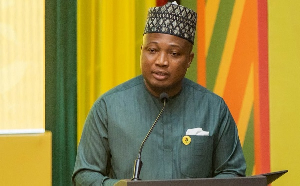President Goodluck Jonathan has challenged African leaders and their peoples to find home-grown solutions to infectious diseases that confront the development of the continent.
He observed that despite significant progress made towards reducing HIV/AIDS, tuberculosis and malaria and other infectious diseases, they still remained serious challenges to the progress of the continent.
“To consolidate our progress in addressing the heavy burden of these infectious diseases in Africa, we must with increased urgency, develop a stronger, home grown, sustainable health financing framework. We must take ownership of the process, and drive its implementation,” President Jonathan told fellow African leaders in Abuja on Monday.
Delivering the opening address at the African Union (AU) Special Summit on HIV/AIDS, Tuberculosis, Malaria, in Abuja, President Jonathan stressed that the time was ripe for final and concerted solution to these diseases.
Vice President Kwesi Bekoe Amissah-Arthur, together with a number of African leaders and representatives of Governments are attending the summit under heavy security presence, to among other things, obtain renewed commitment by African leaders for addressing the diseases and promoting the health and well-being in Africa.
Tagged Abuja +12, the two-day summit, on the theme: “Ownership, Accountability and Sustainability of HIV/AIDS, Tuberculosis and Malaria Response in Africa: Past, Present and the Future,” to discuss the progress so far made since the 2001 Abuja Summit on the three diseases.
The 2001 Summit also gave birth to the Global Fund, which has become one of the major mechanisms for the three diseases.
President Jonathan called for sustained efforts from governments and leaders across Africa, to sourcing expanded and durable solutions to the diseases.
“The human and, societal and financial costs of inadequate action or no action at all, will be too grievous to contemplate,” President Jonathan said, underlining the need to strengthen synergy between government and other stakeholders to reduce duplication of efforts and waste of resources.
President Jonathan noted the negative consequences of political instability, insecurity and infectious diseases on Africa’s progress, but pointed out that: “today, there is renewed hope that together with home-grown initiatives, we can systematically and comprehensively address these tough challenges.”
UN Secretary General Ban Ki-Moon, whose speech was read for him, called for more attention to be directed to the health of women and children if nations wanted to reduce squalor and disease for progress.
Health News of Monday, 15 July 2013
Source: GNA












